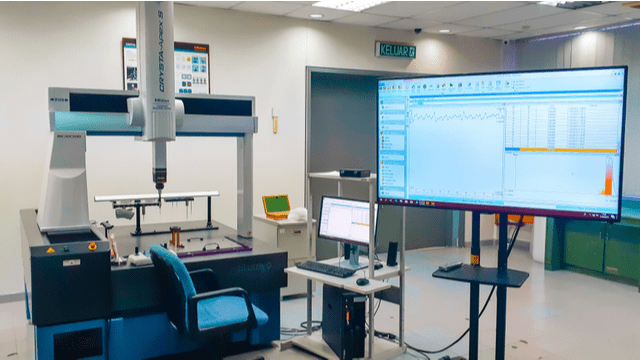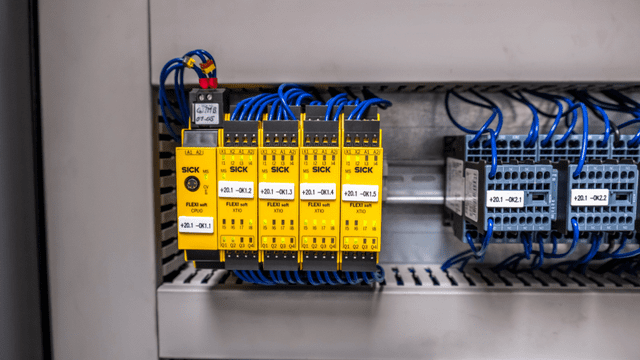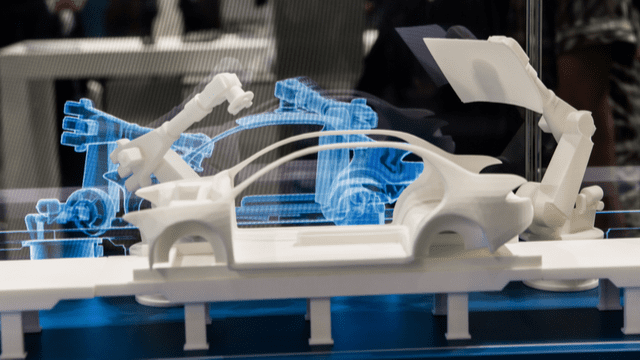How businesses fit into the Industry 4.0 landscape
In an arena full of engineers and manufacturing experts at this year’s Advanced Engineering show, there was bound to be conversation around Industry 4.0. A common topic of discussion among industrial and manufacturing businesses, Industry 4.0 is the subset of the fourth industrial revolution and a reflection of the growing trend towards automation, data exchange and the use of smarter technologies to help improve efficiencies in manufacturing.
In its simplest form, Industry 4.0 is about the computerisation of manufacturing and the development of smart machinery able to analyse and diagnose issues without human input. Covering many different technologies, the concept of Industry 4.0 includes key applications such as the Internet of Things (IoT), digital twins, cloud manufacturing and artificial intelligence to name a few.
Read more about Industry 4.0 in our white paper, Industry 4.0 – developing a smart strategy for getting ahead in manufacturing.
With so many innovative and inventive businesses in attendance at the show, many had questions as to how their businesses fit into the Industry 4.0 landscape and there were many open forums scheduled to provide insight. We were also amazed at the number of different business showcasing technological achievements that have been made through the implementation of Industry 4.0 practices.
We highlight some of our favourites below.
LK Metrology
LK Metrology’s Technical Sales Manager, Joe Brennan, highlighted how his company is innovating to keep up with the developing trends in manufacturing.
Its aim is to connect the dots from an industry and consumer perspective – throughout the coordinate measuring machine (CMM) process.
The process is used to measure the geometry of physical objects, including those used in manufacturing.
Digitisation and simplification of the sequence is key to advancements in this industry. With the ability to provide measurements and data throughout the process, it has become easier to identify when maintenance is required, reducing downtime and the cost of repairs.

WAGO Ltd
WAGO Ltd is a company that develops reliable solutions for businesses across numerous sectors and industries through product lifecycle digitisation and automation of existing production.
Their Automation Manager, Derek Lane, provided a fascinating insight into the role automation technologies and data networks can play in making manufacturing more efficient right through the process.
The use of both the profibus and the developed profinet networks achieve the instant transfer of important data along systems, such as a factory assembly line. This process can be implemented across many different sectors to achieve an automated and self-sustaining system.
It was clear from this discussion that having instant access to data can be the foundation for current and future advancements in the production and manufacturing cycle.

Siemens Digital Industries
Siemens UK Head of Factory Automation, Simon Keogh, spoke in detail about how realising Industry 4.0 via digitisation in industry can help your business – and how they are currently achieving this.
The company develops technology for businesses to utilise that will allow them to reduce the time it takes to get their products to market.
An example of the technology Siemens have developed for manufacturers is software that creates a ‘digital twin’ of components during the design process, allowing manufacturers to predict and simulate how these components will perform for their intended purpose before they are physically created or implemented.
This technology has been successfully implemented by German machine builder Bausch + Strobel to make their manufacturing process more time effective and efficient, as well as helping reduce the level of wasted material and resources.

Industry 4.0 and the future of innovation
Industry 4.0 is set to continue altering the industrial landscape, pushing businesses into making leaps forward to deliver wider benefits. With manufacturers moving towards more automated and digitised systems through the use of smarter technology, manufacturing timescales and waste are falling drastically, with processes becoming much more cost effective.
As a result, it is more important than ever to prioritise investment in innovation to ensure your business can keep up in a rapidly changing industrial sector.
Such innovations can qualify companies for the government’s R&D Tax Credit scheme, which allows eligible businesses to claim back up to 33% of their investment in research and development. The initiative is designed to encourage UK businesses to invest in innovation, so they can continue to help both the country and the world overcome substantial environmental challenges.
Innovative companies are playing their part to preserve our future – let’s find out how we can help support your journey and your business. Speak to our team to find out how we can support your next idea.
Get in touch